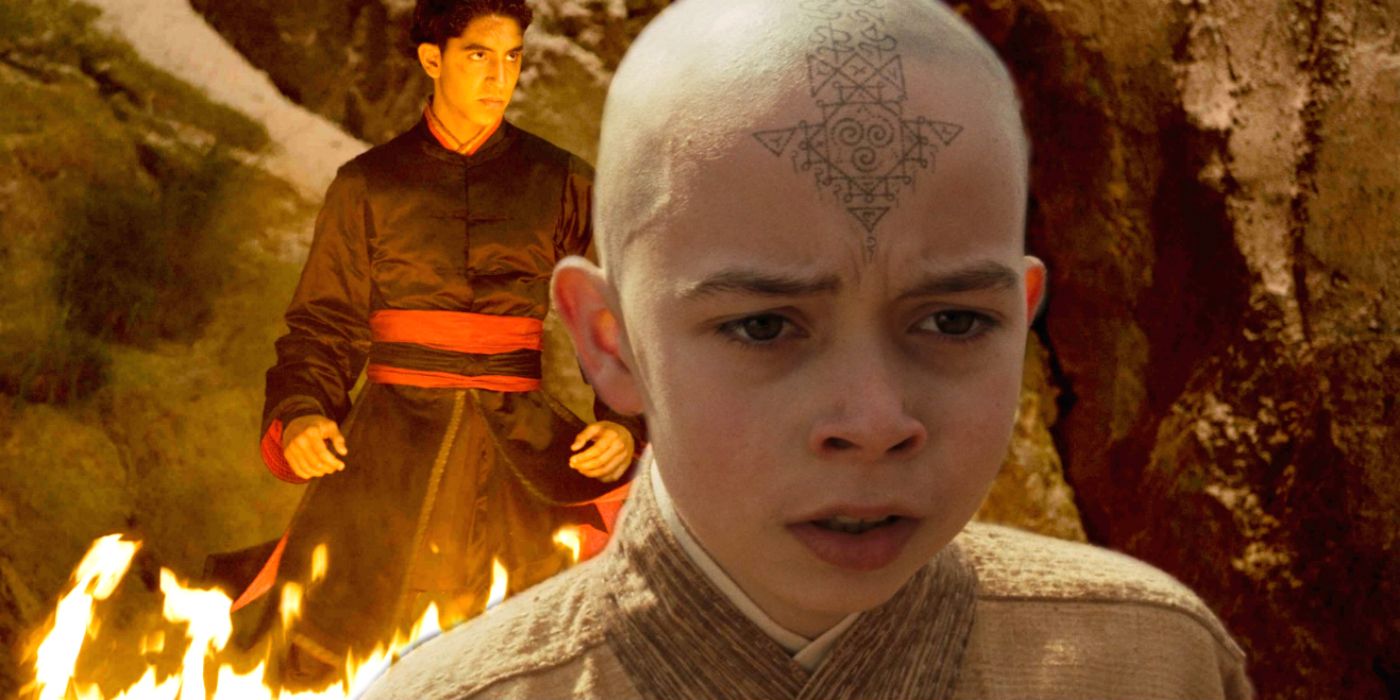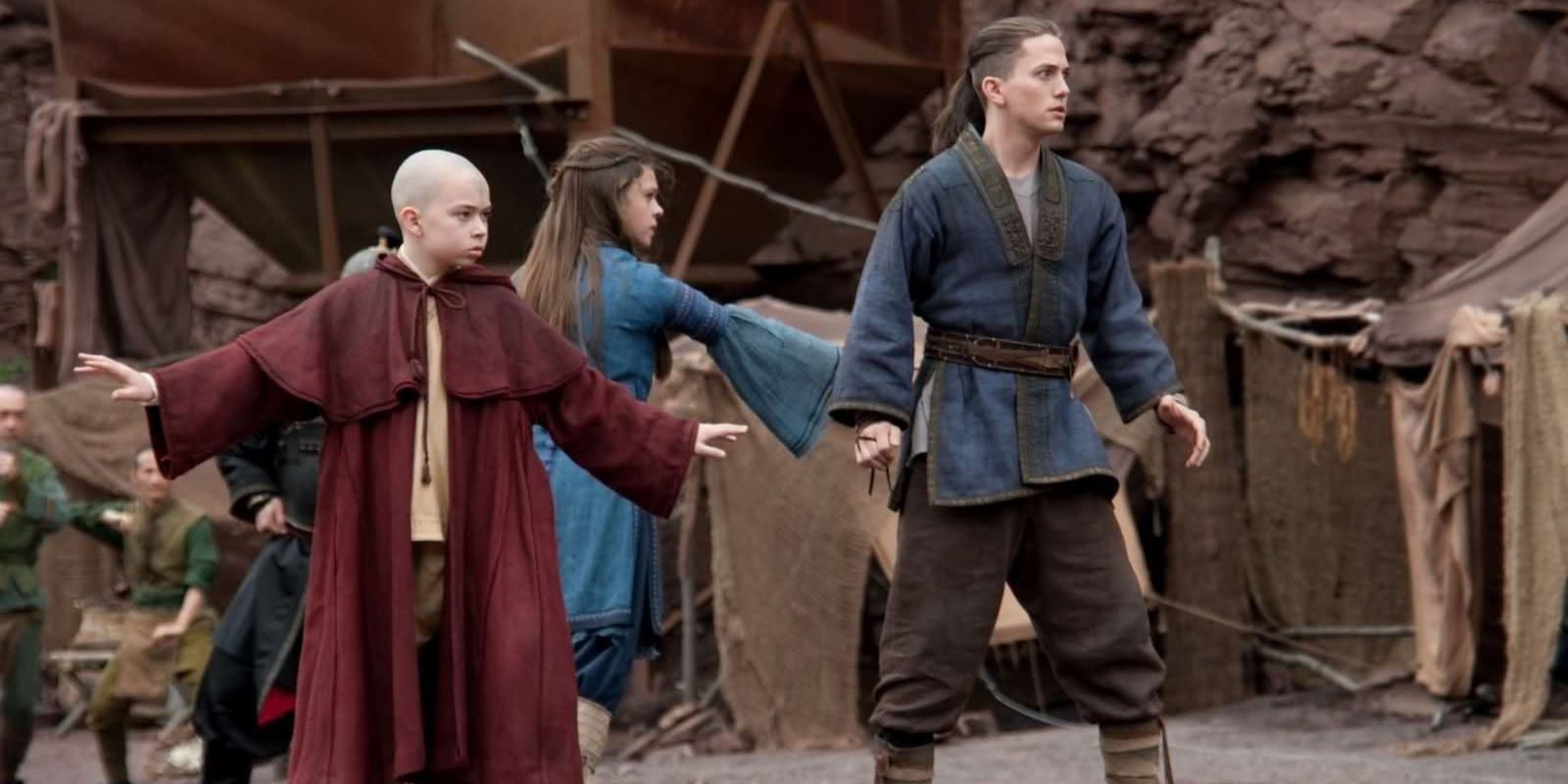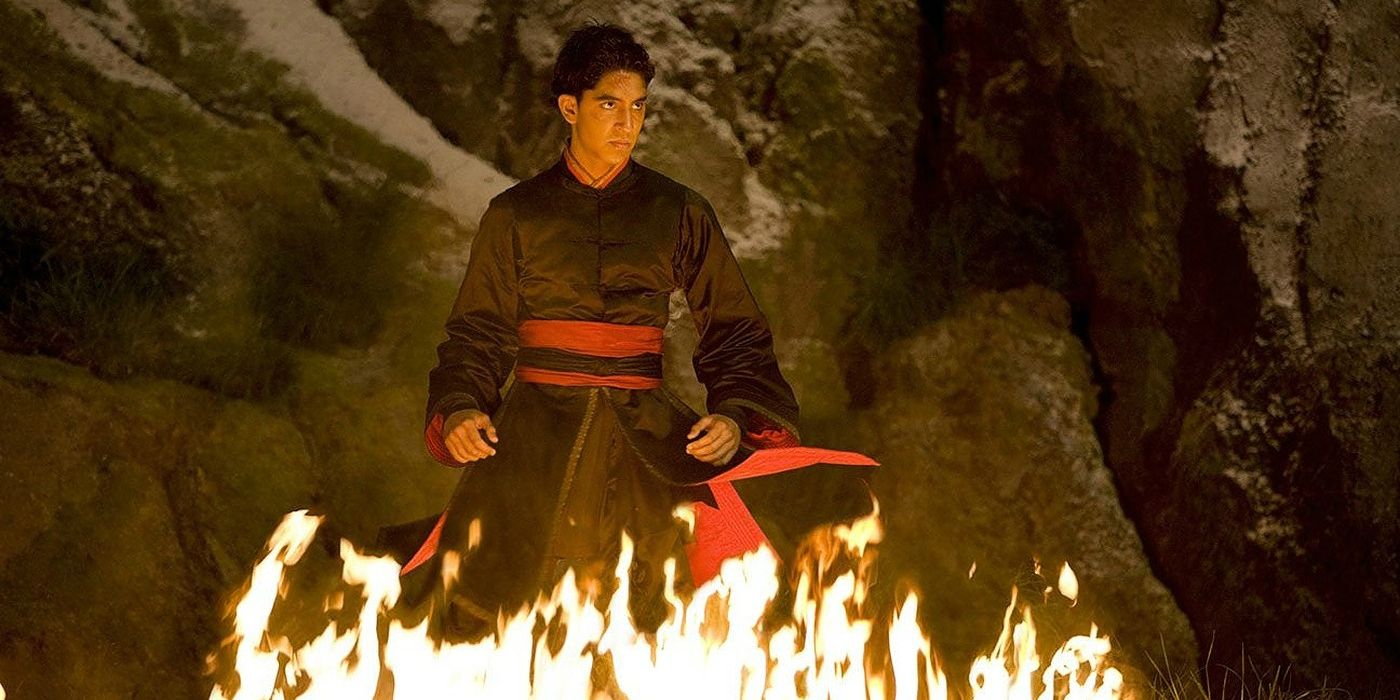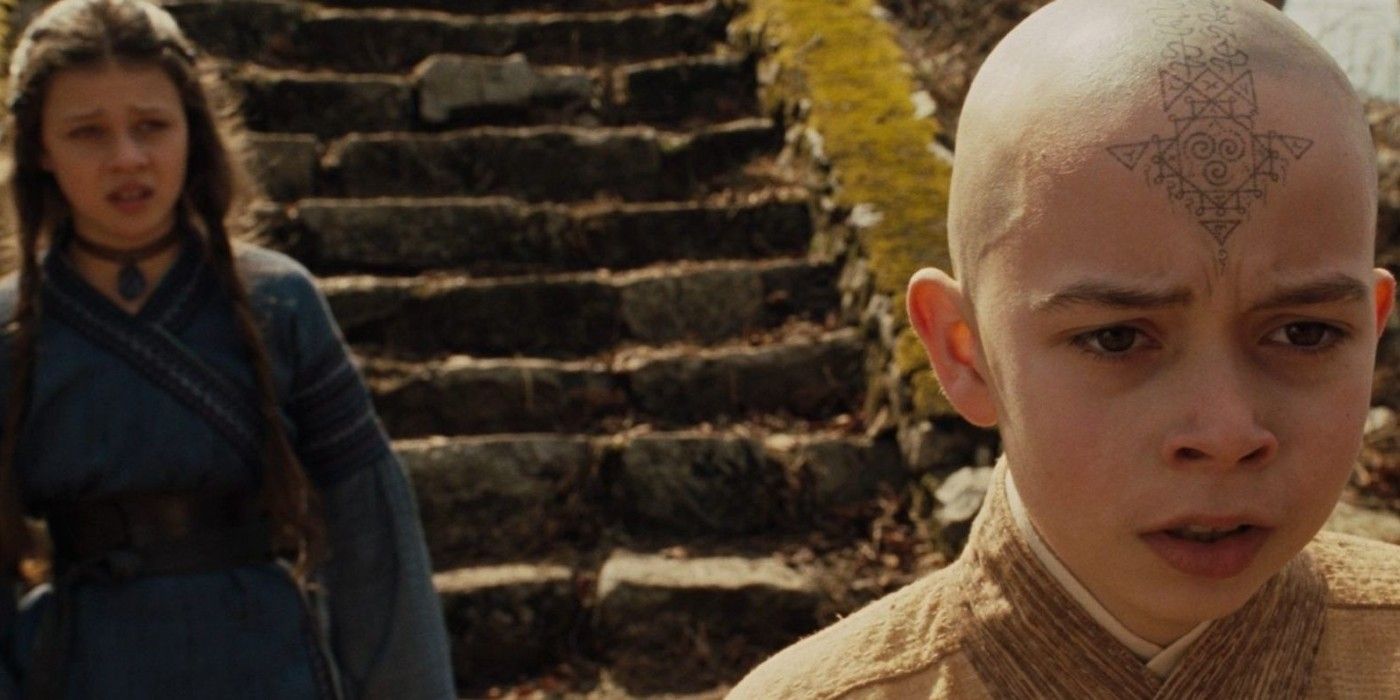M. Night Shyamalan's The Last Airbender is a horrible adaptation of Nickelodeon's Avatar: The Last Airbender, but how much responsibility for that really belongs to Shyamalan himself? Landing in theaters in the summer of 2010, The Last Airbender was panned by practically anyone who laid eyes on it, with fans of Avatar left both shocked and heartbroken that the first big-screen take on the series crashed and burned in such an abysmal way. Even a decade removed from its initial release, The Last Airbender remains highly derided by Avatar fans, general viewers, and Avatar creators Bryan Konietzko and Michael DiMartino alike.
Memories of the movie's colossal disappointment have recently been dredged up following the news of the departure of Konietzko and DiMartino from Netflix's in-development live-action reboot of Avatar. For the time being, it remains to be seen exactly what led Konietzko and DiMartino to walk away from the Avatar reboot apart from basic creative disagreements. However, with their previously much-hyped involvement in the project, much consternation has arisen that the reboot could be repeating the very mistakes that led to the demise of The Last Airbender.
M. Night Shyamalan's reputation as a filmmaker took an enormous hit from the disastrous reception to The Last Airbender, and was further compounded by the later failure of 2013's After Earth. Nevertheless, Shyamalan's more recent work, if not returning him to his glory days of The Sixth Sense, has at least been much more positively received overall, with 2017's Split especially marking a major comeback for him. Bearing Shyamalan's overall resurgence in mind, while the blame for The Last Airbender's many failings tends to be placed at his feet as writer and director, a look back on how the movie was made offers much to indicate that surprisingly little of what went wrong may have come out of decisions made by Shyamalan himself.
The Last Airbender Movie's Biggest Problems
The Last Airbender is as much of an embodiment of Murphy's Law as any movie has ever been, something made far more lamentable by the fact that most of its biggest issues were avoidable. Long before it hit theaters, the film was subject to a major backlash due to its white-washed principal cast, which was a problem that it obviously could have easily side-stepped. Beyond that, The Last Airbender was felled by a combination of a terrible script and action scenes that were a poor reflection of the element bending seen on the show.
In attempting to capture the story of the entire 20 episode first season in 103 minutes (with credits), the story, dialogue, and character development of The Last Airbender all suffered, with the movie itself completely unable to register the kind of emotional impact and engaging humor that made Avatar so popular. To top it off, the film utterly failed in recreating the bending based in various disciplines of martial arts seen in the show, presenting action scenes that are a downright laughable contrast to those of the show. However, while the failings of The Last Airbender are clear as day, it is worth looking back at the production itself to see just how the movie so catastrophically went off the rails.
What We Know About The Last Airbender's Production
While the relative brevity of The Last Airbender's runtime has been raised as a source of many of its issues, the movie also seemingly had a great deal of footage trimmed prior to its release. By the same token, Shyamalan also apparently agreed to trim down the much lengthier screenplay before production. These would do enough damage to the film on their own, but then there's the infamous casting issues.
Since the release of The Last Airbender, rumors have emerged that Nicola Peltz' casting as Katara came out of a family favor from the producers, in turn leading to Jackson Rathbone being cast as her brother Sokka, while Dev Patel's notoriety after Slumdog Millionaire brought about his casting as Zuko, along with Indian actors for the rest of the Fire Nation. Much less information is available as to how the bending of the movie ended up being so horrendous, though one alteration from the show's canon could partially explain this. Specifically, in contrast to their portrayal on Avatar, firebenders in the movie largely cannot manifest flames from their chi, requiring the arrival of Sozin's Comet for this ability to be available to all of them beyond the "highest firebenders", as explained by Fire Lord Ozai in the final scene. In the end, with the soldiers of the Fire Nation only able to rely on ambient flames while in battle, this did the movie's bending-based action scenes no favors.
Was Shyamalan Really Responsible For Last Airbender Being Bad?
While many of the reasons behind The Last Airbender's failure are shrouded in rumor and hearsay, it does seem to boil down to much more than Shyamalan's script and direction. Attempting to distill the entire first season's story into such a short running time was foolhardy and likely born out of the studio's desire to maximize the number of daily showings. While Shyamalan could theoretically have restructured the story to accommodate the shorter runtime, there's really no good way to cram as much material as the first season holds into the time frame he had to work with.
That being said, there's simply no excuse for the bending itself being as bad as it is, especially with Avatar providing a perfect blueprint for the movements behind each element, and while this doesn't have as clear a picture as the movie's other problems, limiting the capabilities of firebenders doubtlessly contributed to it. When it comes to the white-washed casting, this also could be an area where the blame falls to the producers rather than Shyamalan if the rumors behind it are true.
The Last Airbender's failure really comes down to a perfect storm of factors in its writing, casting, visual effects, action scenes, and its all-around production. M. Night Shyamalan has shouldered the bulk of the blame for the movie's countless issues since its doomed debut, and as writer and director, he was surely behind plenty of creative decisions. However, when examining the train wreck of The Last Airbender from beginning to end, it's fair to say that there's plenty of blame to go around, and it is seemingly an instance where the majority of it should not be given to the man who sat in the director's chair.




